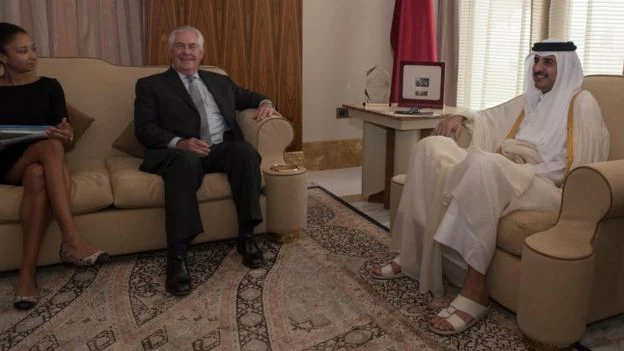One of China's biggest ever property deals is being restructured, less than a week after it was announced.
Dalian Wanda had said it was selling 13 tourism projects - including three theme parks - and 77 hotels to developer Sunac for $9.3bn (£7.1bn).
But now the deal is being split, with another firm, Guangzhou R&F Properties, taking on the hotels.
One analyst described the restructuring of the deal as "very unusual" and "kind of crazy".
Raised eyebrows
Neither side has commented on why the deal was reworked but it is believed to follow bank scrutiny.
R&F, which said it would now be the world's largest hotel owner, saw its share price jump sharply.
Sunac's stocks also rallied, as investors cheered that the firm was taking on less debt risk.
Under the previous terms, Wanda had been due to lend Sunac more than half the money needed to do the deal, which raised eyebrows among some observers.
The restructuring of the deal was "kind of crazy" said Ben Cavender, senior analyst with China Market Research.
"It is very concerning, and it's very unusual at this late stage to have a $9bn deal, and then to have another deal with another company in place."
He added Chinese firms were running into trouble because they did not have the due diligence or vetting in place for large mergers and acquisitions.
"They put out a lot of press, then the regulators realise there's some issues that need to be addressed. I suspect that's what happened here."
The initial transaction had been a surprise - not least because it represented a U-turn from Dalian Wanda's ambitions to expand in the tourism sector.
The three Chinese theme parks had only opened in the past year, and were intended to compete with US giant Disney's ventures in the country.
While it emerged as a property giant in China, Dalian Wanda has come to prominence abroad after its heavy investment in the film and cinema industries.
It controls the AMC cinema chain, as well as Legendary Entertainment, co-producer of hit films including Godzilla and The Dark Knight Rises.
But it is one of several major Chinese firms whose transactions have come under scrutiny from Beijing, and it has been widely reported that Chinese banks have been told to stop providing funding to Dalian Wanda and others to make overseas acquisitions.
'Bit of a mess'
The effects of the clampdown were first seen earlier this year when Wanda pulled out of a $1bn bid for the owner of the Golden Globe TV and film awards.
That pressure is widely seen as a blow to the ambitions of Wanda's billionaire chief executive Wang Jianlin.
"I'm a little bit sympathetic to Wanda," said Christopher Balding, professor of politics and economics at Peking University.
"What they were doing 12 months ago was being heavily encouraged by Chinese regulators. Beijing wanted to improve its soft power with entertainment assets and things like this and Wanda was very willing to help there.
"But they've clearly fallen into a bit of a mess."



















